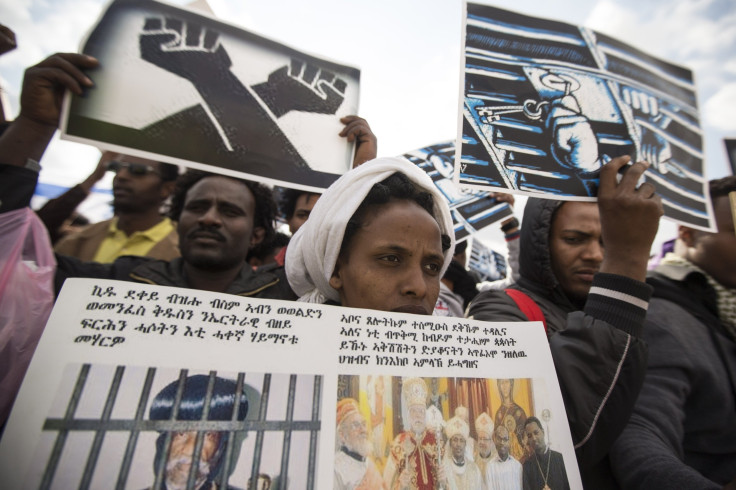Mutasim Ali Asylum Case: Israel To Release Darfuri Activist Following Lengthy Legal Battle

A prominent Sudanese leader of the African asylum seeker community in Israel will be released from the detention facility where he has been held for more than a year, Attorney General Yehuda Weinstein ruled Tuesday. The case marks the first time an Israeli court has handed down a ruling to release a person based on state delays in responding to asylum requests.
Mutasim Ali, a refugee from Sudan’s west Darfur region, has been challenging his detention since he was first summoned in May 2014. His primary argument rested on the fact that he had applied for official asylum status, having met the UN Refugee Commission requirements, but never heard back from the state, Ha’aretz reported.
Ali, from the Darfur region of Sudan, was studying geology in the Sudanese capital at the time he fled the country. He became politically active and was placed under tight surveillance. He was jailed by Sudanese authorities three times. The UN High Commissioner for Refugees had recommended that Ali be granted refugee status.
His detention was extended several times over the last year, until Tuesday, when the attorney general ruled to release Ali after taking into account the length of time since he submitted his asylum request and the amount of time he had already been held. His case garnered international media attention when he was first detained in May.
The Holot detention facility where Ali was being held has been called an “open” facility by officials. The more than 1,800 African asylum-seekers being held there are able to leave during the day, but are required to check in multiple times and sleep there each night. Just before his detainment in 2014, in an interview with Ha’aretz, Ali referred to the site as “racist.”
“They say it’s an open facility. It’s not an open facility; it’s a jail, not a refugee camp," he said. "They put a person in the desert, in a place he can’t leave ... There are no health or education services; it’s forbidden to learn Hebrew. In what refugee camp would they forbid you to learn a language? The aim is to put people there and embitter their lives even more, just so they’ll agree to return [home].”
Israel has no official policy toward asylum seekers from Darfur, or from Sudan more broadly. More than 3,100 Sudanese nationals have submitted asylum requests since 2009 – most of them from the country's restive Darfur region – but as of February of this year, the government had only responded to 45 requests, Ha'aretz reported. In all cases, the government denied the asylum requests.
The status of asylum seekers in Israel has been a controversial one in the country founded as a haven for Jewish refugees in the aftermath of the Holocaust. Israel's leaders believe many asylum seekers in the country are, in fact, economic migrants who could return home, but international law forbids deportations to countries where individuals may be at risk. In an attempt to persuade Africans to leave the country, Israel has offered $3,500 payments and has ordered thousands to detention in Holot, the LA Times reported.
More than 50,000 African migrants are believed to currently live in Israel. Most of them live in Tel Aviv, where the city's municipality offers many of them aid, including education for children, according to Al Arabiya.
© Copyright IBTimes 2024. All rights reserved.












